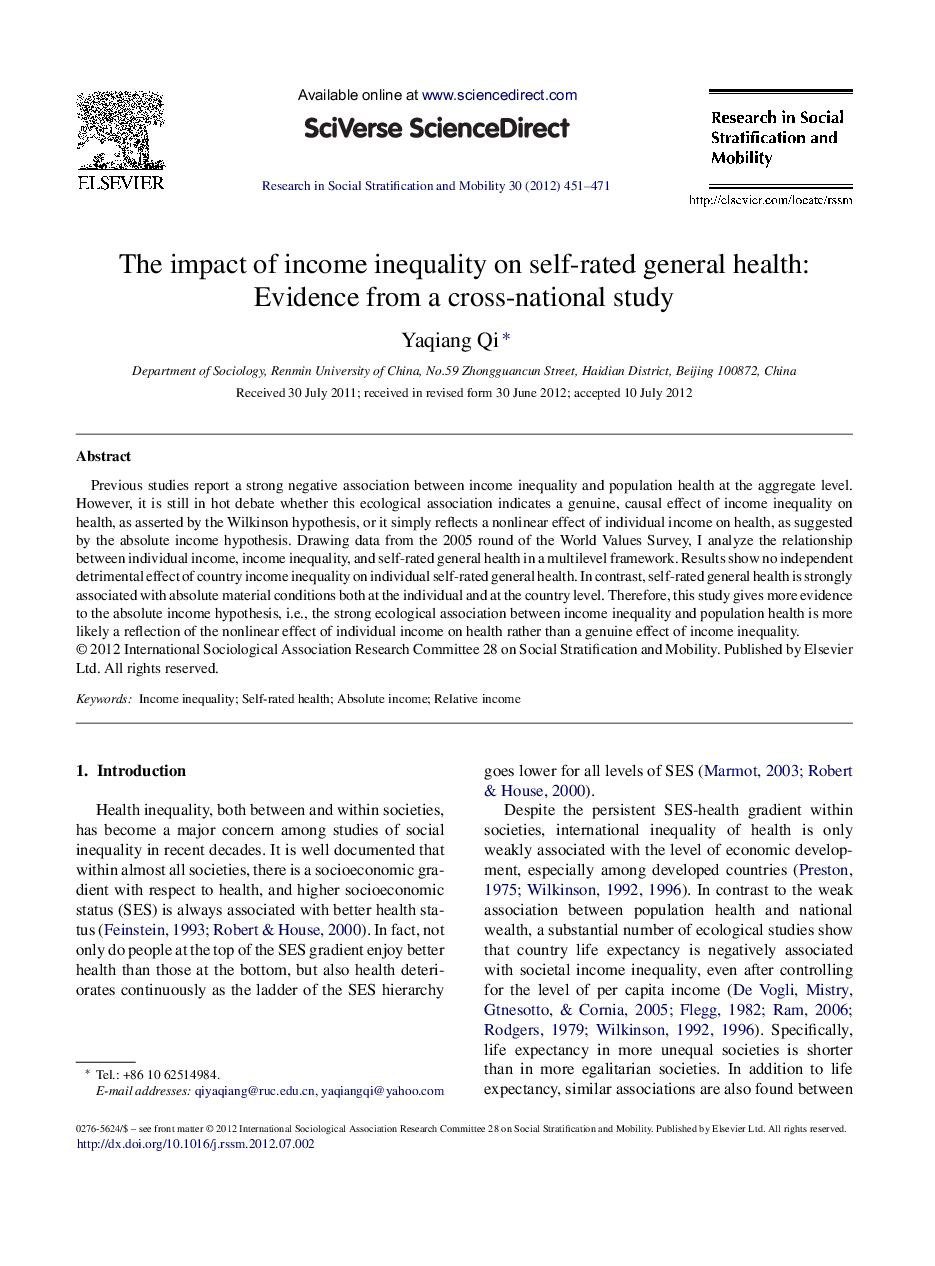| Article ID | Journal | Published Year | Pages | File Type |
|---|---|---|---|---|
| 1000677 | Research in Social Stratification and Mobility | 2012 | 21 Pages |
Previous studies report a strong negative association between income inequality and population health at the aggregate level. However, it is still in hot debate whether this ecological association indicates a genuine, causal effect of income inequality on health, as asserted by the Wilkinson hypothesis, or it simply reflects a nonlinear effect of individual income on health, as suggested by the absolute income hypothesis. Drawing data from the 2005 round of the World Values Survey, I analyze the relationship between individual income, income inequality, and self-rated general health in a multilevel framework. Results show no independent detrimental effect of country income inequality on individual self-rated general health. In contrast, self-rated general health is strongly associated with absolute material conditions both at the individual and at the country level. Therefore, this study gives more evidence to the absolute income hypothesis, i.e., the strong ecological association between income inequality and population health is more likely a reflection of the nonlinear effect of individual income on health rather than a genuine effect of income inequality.
► Whether income inequality has a genuine harmful effect on health is in hot debate in social studies of health. ► Data from the 2005 round of the World Values Survey are analyzed to examine the “income inequality-health” relationship. ► Adjusted estimates of income inequality are used to improve international comparability. ► Results provide little evidence in support of an independent, detrimental effect of income inequality on health. ► Absolute material conditions are more important predictors of health than relative distribution of income.
